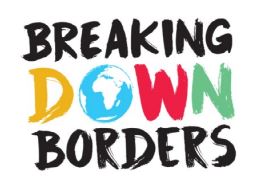
If we cannot pay for something that promotes trade, how are we ever going to get rid of all the stuff that prevents trade?

An agency in Zimbabwe wants to advertise on behalf of a regional client in the Economist. We are contacted for rates but there is a snag, everything has to be converted to US dollars or Rand because seemingly, those are the only legal tender currencies in Zim.
Now we start negotiating. Working on our standard rates, the ad works out to about 160 American dollar but that is too expensive for the client. We haggle like in an informal bazaar but after a while I get tired of being bothered by Marketing with a new offer. I suggest a round one hundred US dollar – take it or leave, and by the way, stop bugging me.
At that point, I thought it was the end of the convoluted session with the Zimbabwean agency but I was wrong. Deciding and agreeing on a rate was only half the battle. Now we had to find a way for them to pay us because if there is one thing we learned over thirty years, it is that you don’t accept cross-border business until you see the payment in your bank account.
This was where it became tricky. About the only option available was a so-called SWIFT transfer but again the client baulked at the additional cost and we were not prepared to carry it. Eventually, through their contacts in London, a WorldRemit transfer was arranged and we received a Proof of Payment that same afternoon although it took another two days before the funds reflected in our bank account.
This long tale serves not to bore you but only to tell the real-life story of a simple event but one that illustrated just how very, very far away we are from regional integration, let alone reaching all the lofty ideals for an African continental free trade area.
If something as simple as a cross-border payment stands in the way of a transaction between a business in Zimbabwe and one in Namibia, exactly how many years to you think it will take before we get to something as complex as a complete harmonisation of customs documents and procedures.
It is futile to punt the idea of a continental free trade area when two people in neighbouring countries in southern Africa cannot even pay each other for services or products rendered.
And this is only one insignificant instance in this ongoing saga of one after the other blockage to cross-border trade. In economic jargon, we call it trade barriers and we distinguish between direct or tariff-based barriers and non-tariff barriers.
The former is easy to define and identify, it is the money a government charges a trader to move product into its territory. In short, it is a form of tax, thus a source of income for governments, but it is also a major trade inhibitor hence all the attention it receives in academic trade literature.
Non-tariff barriers usually pertain to infrastructure and/or procedures but it can also be very subtle like a Japanese Inspection. This famous text book example goes something like this: You are a dealer in fresh produce and you want to import a consignment of lettuce for your local market. But your government, under pressure from local producers and other importers do not want more lettuce entering the local market. So, they tell you, you have to get a health inspection of the goods before they can be released from the warehouse at the quay.
This is where it gets interesting. You, as the trader, desperately start looking for a health inspector. When you finally manage to locate one, you make an appointment for him or her to inspect your cargo at such and such a warehouse at so and so a time.
Only the inspector never shows up. When you manage to get hold of him again, he (or she) has some excuse for not attending the meeting. This happens twice or thrice but eventually the inspector pitches up. In the meantime, four or five days have come and gone, and your lettuce being a perishable item, does not look that good any more.
So what happens, the consignment of lettuce gets rejected and you have to remove what is left at your cost. That is a Japanese Inspection and that case is the epitome of a non-tariff barrier although there are many others.
The point is, if we are serious about regional integration which I hold for axiomatic before we can get to a continental free trade area, then surely our payment systems must facilitate cross-border trade, not inhibit it.
And if it become so difficult to pay for a stupid advertisement, how are we ever going to pay for the thousands of tonnes of goods that we can trade with each other if only we did not have all these obstacles in place.
Furthermore, if we have failed for the past thirty years to harmonise trade systems between close neighbours in the same neck of the woods, what are our chances of establishing a continental free trade area in under a hundred years. I think they are particularly slim.










































